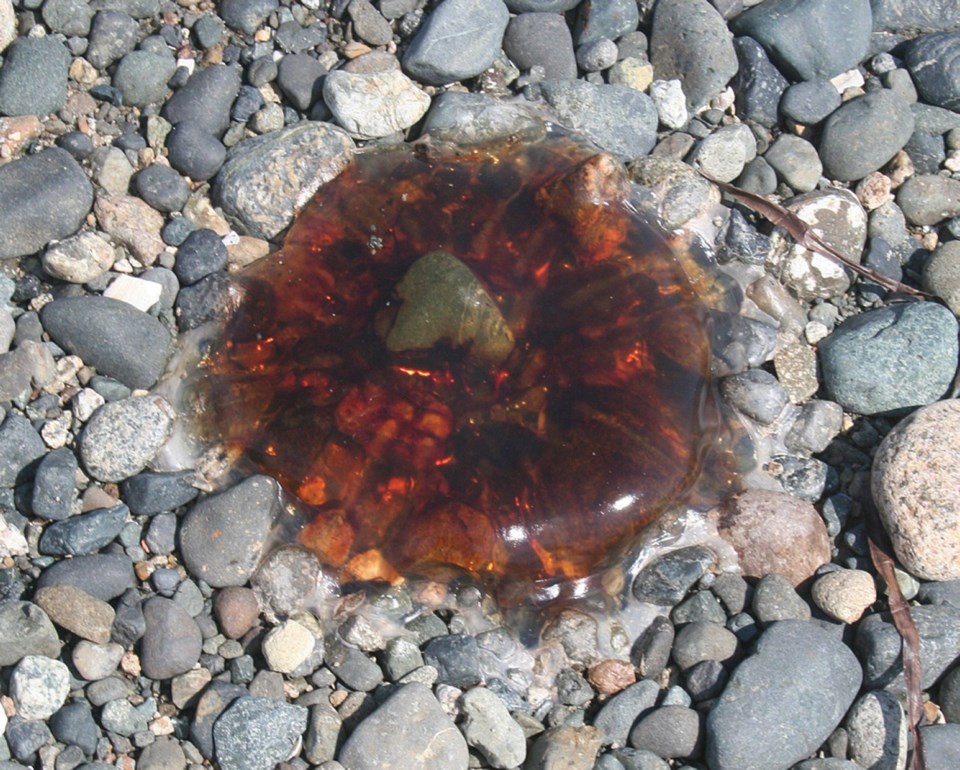Ocean experts are warning anyone curious about the red jellyfish washing up on Vancouver Island beaches to keep their distance.
Aquarist Sarah Friesen said the lion’s mane jellyfish, whose one-year life cycle causes an annual spike in beach sightings in August and September, can still sting even after dying.
“We’ve had a lot of people wanting to know more about them,” said Friesen, who works at the Shaw Ocean Discovery Centre in Sidney. “A few unfortunate people investigate too closely and end up getting stung.”
The lion’s mane jellyfish is a native species. They spend most of their life offshore, within 20 metres of the ocean surface. But the drifters are carried by ocean currents and often end up in shallow, sheltered bays toward the end of their lives.
“Because they’re already very close to shore, they’ll end up washing up when they’re almost dead or completely dead,” Friesen said.
According to the Oregon Coast Aquarium, the lion’s mane is the largest known species of jellyfish — one specimen measured 40 metres in length including tentacles, making it longer than a blue whale.
Its bell can grow to 2.5 metres in diameter, Friesen said, but the ones that wash up on shore typically measure 30 to 60 centimetres.
“They can get massive and their tentacles can hang a very long distance in the water, so it’s also good to look out for when you’re swimming,” Friesen said.
The jellies — the young ones are orange-red, while the older ones are purple-red — typically wash up on shore beginning in August and continue through mid- to late September. Encounters are unlikely at other times of the year, unless they are spotted from a boat, she said.
The jellyfish has a pressure-release mechanism that allows them to sting after death.
“It’s not the animal deciding to sting you,” Friesen said. “Anything that brushes up will get stung.”
She likened the feeling to a bee sting and said anyone stung should expect a welt, redness and swelling for a few days. As it heals, it will become itchy.
“It’s always possible for someone to have a weird reaction, so if you’re at all concerned, you should see a doctor. But things like vinegar will help take the sting away and neutralize the stinging cells,” Friesen said.



